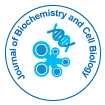Phytomolecules for Obesity and Body Weight Management
Received Date: Nov 30, 2017 / Accepted Date: Dec 20, 2017 / Published Date: Jan 05, 2018
Abstract
Obesity is one of the most prevailing health issues worldwide. It has been commonly found to be associated with metabolic disorders such as diabetes, hypertension, cardiovascular diseases and some form(s) of cancers. Excessive energy intake, physical inactivity and genetic susceptibility are main causal factors for obesity. In the modern era, various medicines have been developed for overweight and obese people, but nearly all these have serious side effects. Currently, plant-based natural products as anti-obesity therapeutics are largely unexplored. Many plant-derived molecules have been found to possess anti-obesity effects with advantages over chemical treatments. So there is a basic need to develop effective drugs for obesity management/treatment with minimal side effects. Plants may prove promising options for the same. Natural plant products are widely used in healthcare or as dietary supplements. The important phytomolecules include flavonoids, terpenoids, saponin, phenols and alkaloids. The majority of plant extracts are not single compounds but rather a mixture of different molecules, therefore their mechanism of action usually targets several organ and cellular systems. The phytomolecules would act through their inhibitory activities for pancreatic lipases, adipocyte differentiation or by increasing thermogenesis and anorexia. In this review, we discuss the anti-obesity potential of phytomolecules and also analyze their mechanisms for treating obesity.
Keywords: Phytomolecules; Obesity; Anti-obesity; Flavonoids; Terpenoids; Alkaloids; Phytosterol
Citation: Sharma T, Kanwar SS (2018) Phytomolecules for Obesity and Body Weight Management. J Biochem Cell Biol 1: 101.
Copyright: ©2018 Sharma T, et al. This is an open-access article distributed under the terms of the Creative Commons Attribution License, which permits unrestricted use, distribution, and reproduction in any medium, provided the original author and source are credited.
Select your language of interest to view the total content in your interested language
Share This Article
Recommended Journals
Open Access Journals
Article Usage
- Total views: 8595
- [From(publication date): 0-2018 - Nov 26, 2025]
- Breakdown by view type
- HTML page views: 7326
- PDF downloads: 1269
